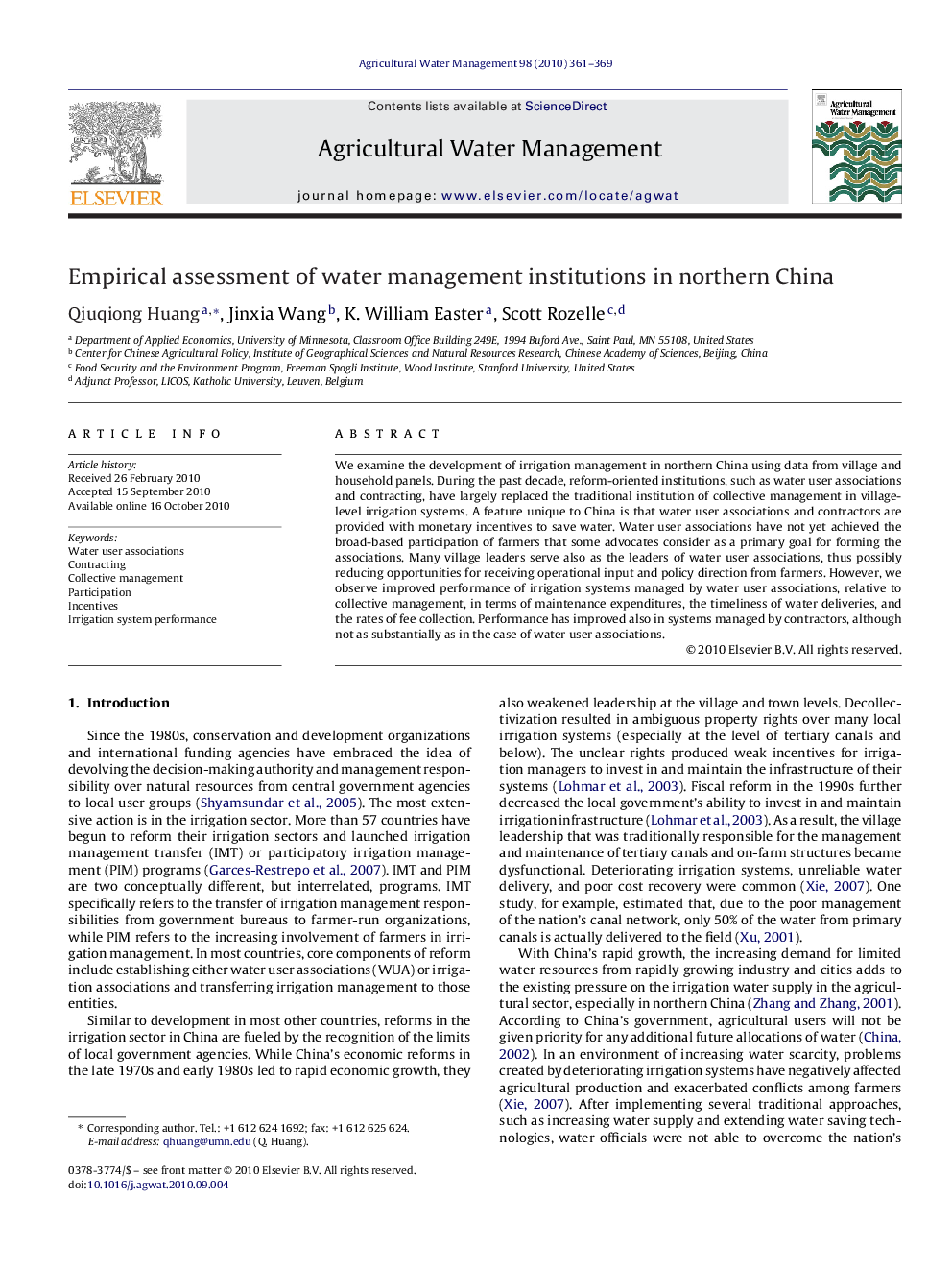| Article ID | Journal | Published Year | Pages | File Type |
|---|---|---|---|---|
| 4479528 | Agricultural Water Management | 2010 | 9 Pages |
We examine the development of irrigation management in northern China using data from village and household panels. During the past decade, reform-oriented institutions, such as water user associations and contracting, have largely replaced the traditional institution of collective management in village-level irrigation systems. A feature unique to China is that water user associations and contractors are provided with monetary incentives to save water. Water user associations have not yet achieved the broad-based participation of farmers that some advocates consider as a primary goal for forming the associations. Many village leaders serve also as the leaders of water user associations, thus possibly reducing opportunities for receiving operational input and policy direction from farmers. However, we observe improved performance of irrigation systems managed by water user associations, relative to collective management, in terms of maintenance expenditures, the timeliness of water deliveries, and the rates of fee collection. Performance has improved also in systems managed by contractors, although not as substantially as in the case of water user associations.
Research highlights▶ WUA and contracting have largely replaced the traditional collective management. ▶ WUAs have not yet achieved the broad-based participation of farmers. ▶ WUA improved performance of irrigation systems.
